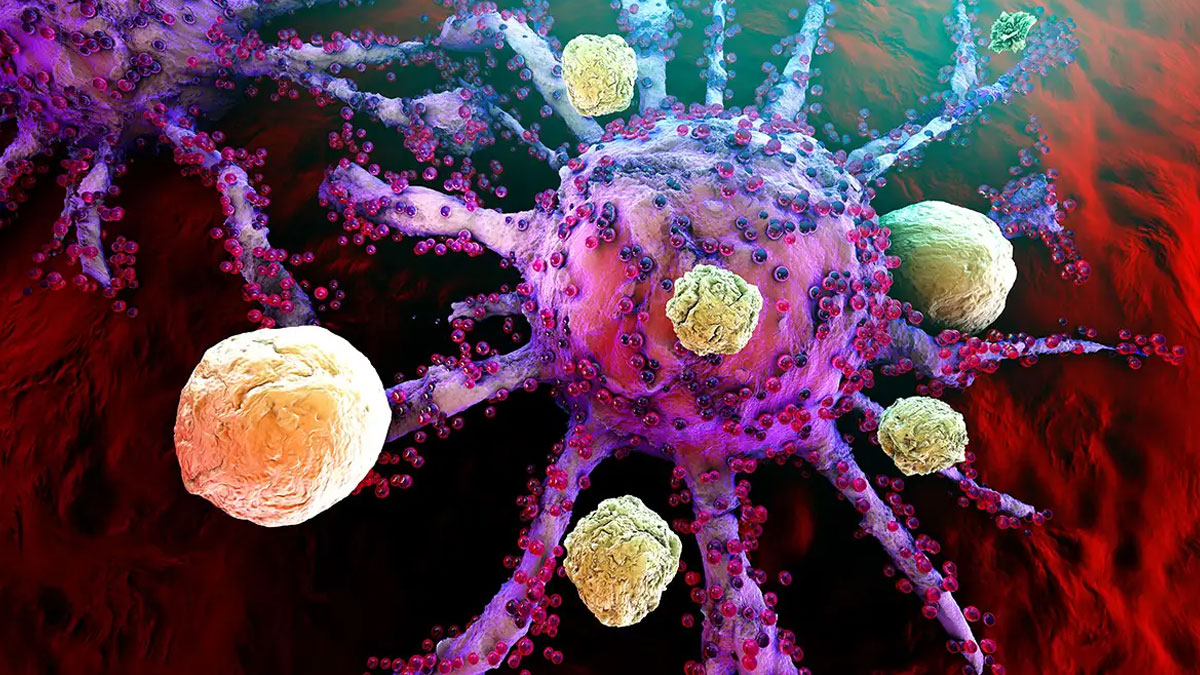
Cancer treatment outcomes have long been linked to various factors, including genetics, tumor type, and stage at diagnosis. However, a groundbreaking study conducted by researchers at University College London and the Francis Crick Institute sheds light on a crucial yet often overlooked factor—the immune system. The study reveals that cancer patients with a higher proportion of immune cells in their blood have significantly better survival rates, emphasizing the role of the immune system in shaping treatment success.
Table of Content:-
The Role of Immune Cells in Cancer Prognosis
The immune system plays a vital role in fighting diseases, including cancer. Immune cells such as T cells and B cells work as the body’s natural defense against harmful invaders, including cancerous cells. This study found that cancer patients tend to have a lower proportion of T cells in their bloodstream compared to healthy individuals. More importantly, those with a higher count of T cells experienced significantly better outcomes.

Researchers used a pioneering technique known as Immune Lymphocyte Estimation from Nucleotide Sequencing (ImmuneLENS) to analyze immune cell proportions from whole genome sequencing (WGS) data. By studying over 90,000 samples from both cancer patients and healthy individuals, they determined that T cell levels were a strong predictor of survival. Patients with higher T cell proportions had a 47% lower mortality rate over five years after undergoing surgery.
Also Read: Kerala Issues Health Alert Over Nipah Virus: Here’s Why You Should Stay Vigilant!
A Universal Biomarker for Cancer Outcomes
The significance of these findings extends across all types of cancer. While cancer stage and age are traditional indicators of prognosis, immune cell levels provide an additional layer of insight. This discovery suggests that measuring T cell levels could be integrated into existing diagnostic tools, helping doctors personalize treatment strategies.

Professor Nicholas McGranahan, a senior author of the study, emphasized that while previous research has primarily focused on immune responses within tumors, this new tool enables a broader perspective. He suggested that assessing T cell levels in the blood might be even more predictive of survival than analyzing immune cells within the tumor itself.
Also Read: Norovirus Cases In UK Spike By 116%—Here’s How To Stay Safe!
Sex-Based Differences in Immune Cell Decline
Another surprising aspect of the study was the observation that the proportion of immune cells declines faster in male cancer patients than in females. While the reason behind this difference remains unclear, it raises intriguing questions about how biological sex influences immune function and cancer progression. Further research is needed to determine whether hormonal, genetic, or lifestyle factors contribute to this disparity.

Potential for Early Cancer Detection
The study also revealed an unexpected insight: individuals who were seemingly healthy at the time of sample collection but later developed cancer had below-average levels of B cells in their blood. This suggests that changes in immune cell levels may serve as an early warning sign of cancer or indicate pre-cancerous conditions. If validated through further research, this finding could pave the way for earlier cancer detection and intervention, potentially improving patient outcomes.
Implications for Future Cancer Treatments
The ability to measure immune cell proportions could revolutionize cancer diagnostics and treatment planning. Integrating immune profiling into routine screening processes could help doctors tailor treatment strategies more effectively. Additionally, it opens the door for potential immune-based therapies designed to enhance the body’s natural defenses against cancer.
With cancer research continuously evolving, studies like this provide crucial insights into the intricate relationship between the immune system and disease progression. As scientists uncover more about how immune cells influence cancer outcomes, these findings may lead to more effective, personalized treatments, ultimately improving survival rates and quality of life for cancer patients worldwide.
Also watch this video
How we keep this article up to date:
We work with experts and keep a close eye on the latest in health and wellness. Whenever there is a new research or helpful information, we update our articles with accurate and useful advice.
Current Version